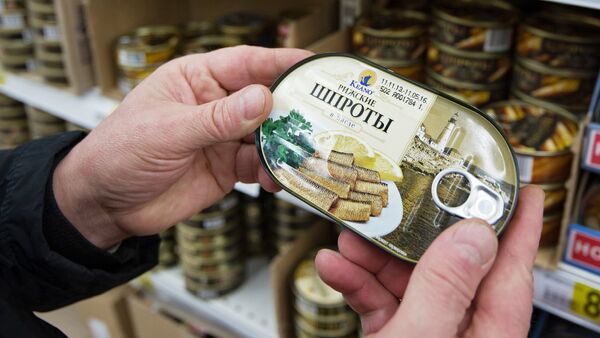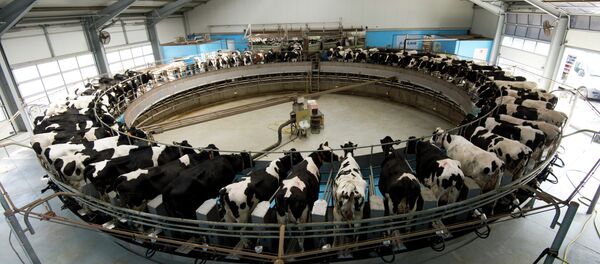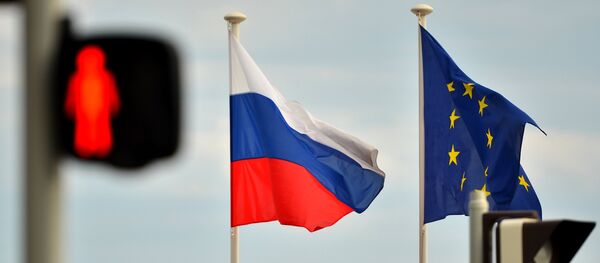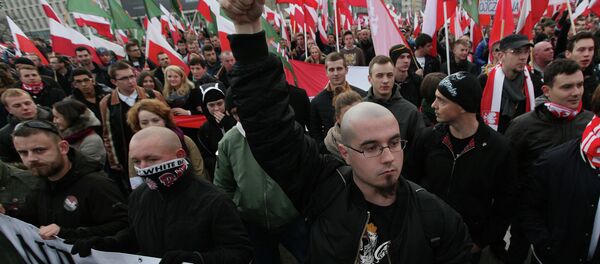Rinkēvičs retorted, noting that "we have heard this type of scaremongering for more than a year now –that 'Latvia would suffer the most from the sanctions', that 'GDP would fall by 20 percent,' that losses would 'run in the billions.' But the statistics and economic indicators completely refute this conjecture. Therefore, I consider such reports in the media to be informational propaganda, whose purpose is to shake Latvia's principled position."
Last month, the Austrian Institute of Economic Research projected that Latvia would suffer a 1.87 percent hit to GDP (€390 million) and 25,000 lost jobs (2.81 percent of total employment) as a result of the sanctions war between the West and Russia.
With Rinkēvičs arguing that "Russia too has very seriously suffered from the sanctions," Delfi noted that "the idea that 'things are worse in Russia' will hardly warm the hearts of Jürmala businessmen counting their losses this season."
The State's Interests Separate From Those of Society?
The official explained that "we have to think in a broader context," suggesting that "if Russia violates international treaties of the UN and the OSCE, it may violate any agreements in the economic sphere in the same way. Of course no one imposes sanctions simply from a good life. The purpose [of the sanctions] is to ensure a political settlement in Donbass. Without sanctions, we would not be able to come to the signing of the Minsk agreements."
Furthermore, Rinkēvičs suggested that sanctions can be viewed as a matter of national security. "For those who are now saying 'let's forget everything and begin to trade', I want to remind you that this issue directly concerns the security of Latvia. If we are to agree to the violation of one territorial agreement, where are the guarantees that Russia will not attempt to use these tactics in relation to the Baltic states?"
It is worth noting that Russia was credited with taking a key role in the initiation and drawing up the Minsk Protocol via the Trilateral Contact Group on Ukraine back in the summer of 2014, in an effort to stop the civil war in Ukraine's east, which began when Kiev launched its 'anti-terrorist operation' against independence and autonomy supporters back in April 2014.
'Even Under Most Optimistic Scenario', Relations Between Russia and EU Cannot Be Restored to Pre-Crisis Levels
As to the continuing problems Latvia faces with its 'non-citizens' –a group of over 262,000 residents of Latvia, most of them ethnic Russians, Ukrainians and Belarusians, who do not have Latvian citizenship, and who have been issued a 'non-citizen passport', Rinkēvičs noted that "these questions are in the competency of other ministries." The minister suggested that in many cases, the non-citizens themselves are to blame for their status, which deprives them of the right to vote, to hold certain positions in civil service and government, and limits their pension rights.
"A lot of research has been done, and a large percentage of non-citizens say that the do not want to undergo the process of naturalization, since with a non-citizen passport, they can freely travel within the European Union, and to Russia," Rinkēvičs said. "We could do everything in our power, and these people still won't apply for citizenship," he added. For its part, the United Nations has repeatedly described the Latvian government's position on 'non-citizens' as discriminatory and xenophobic.





